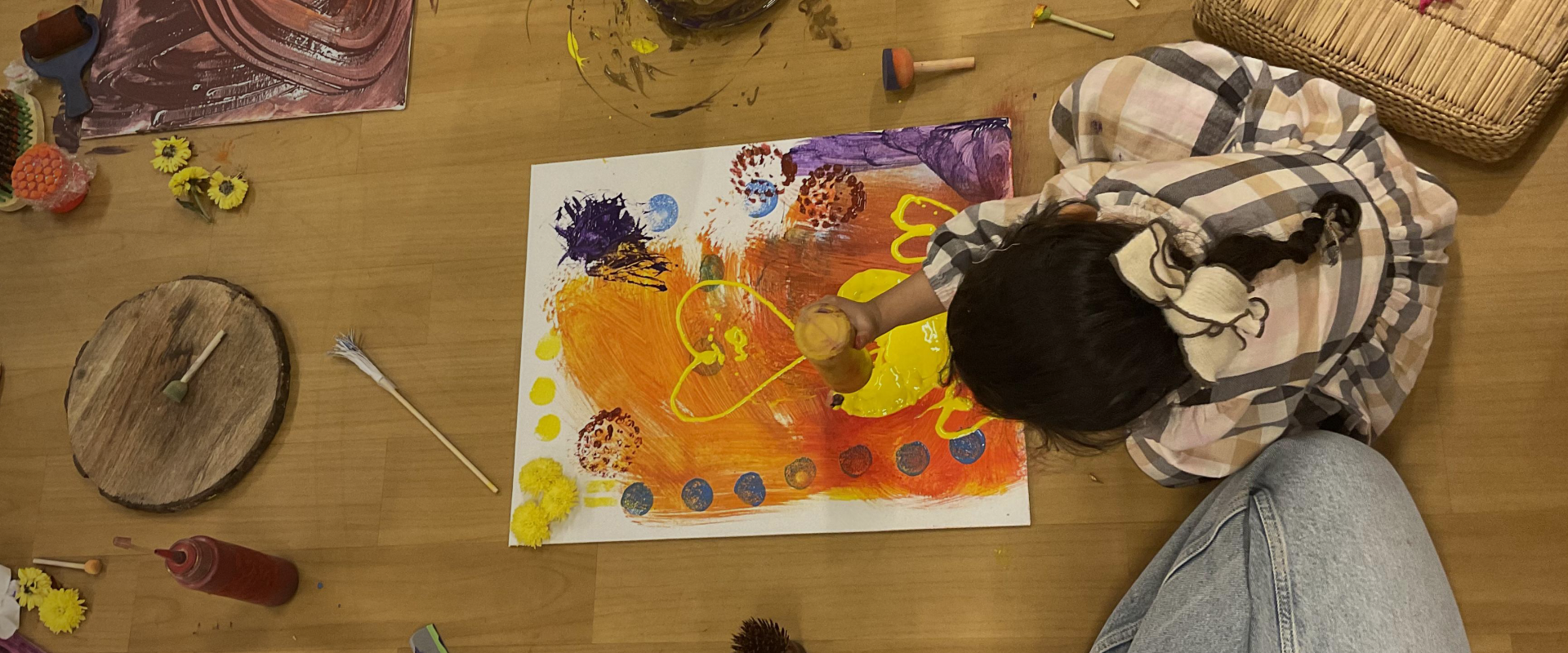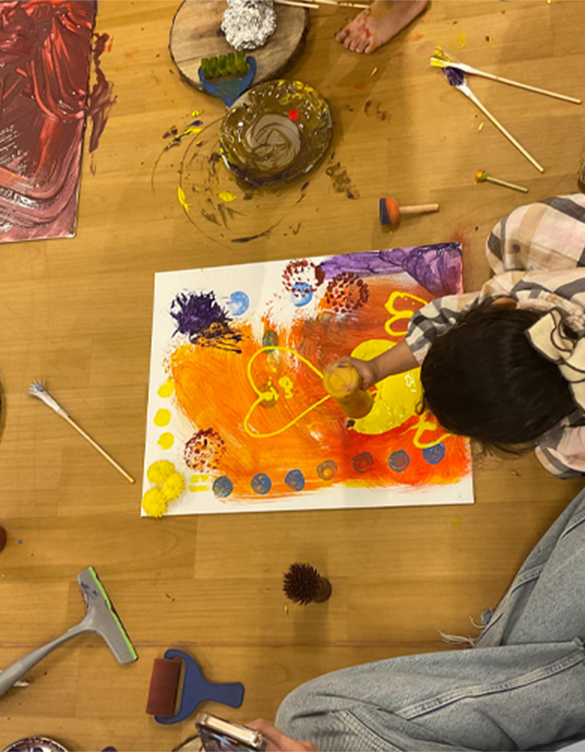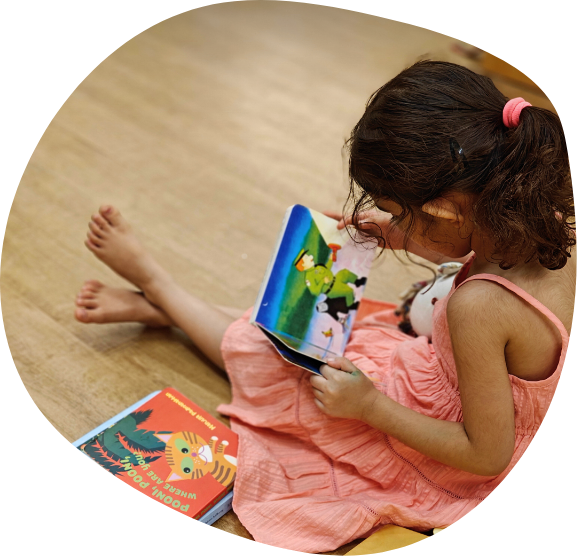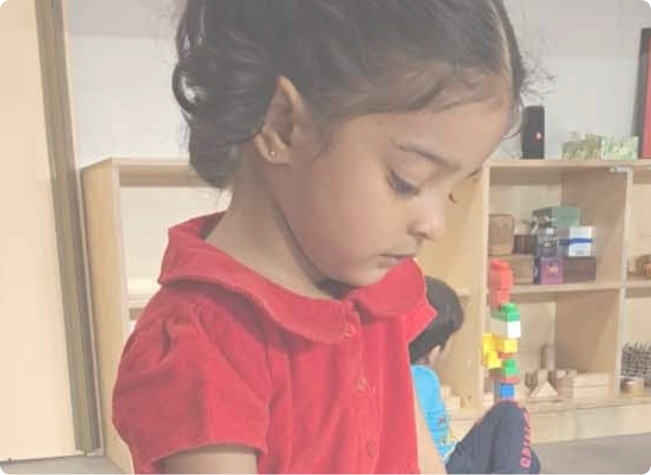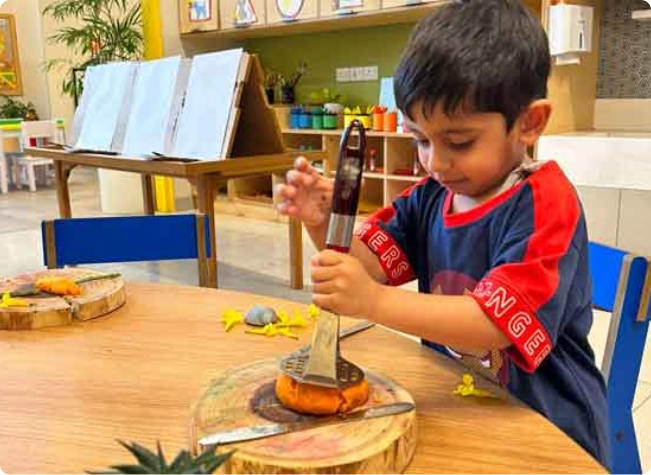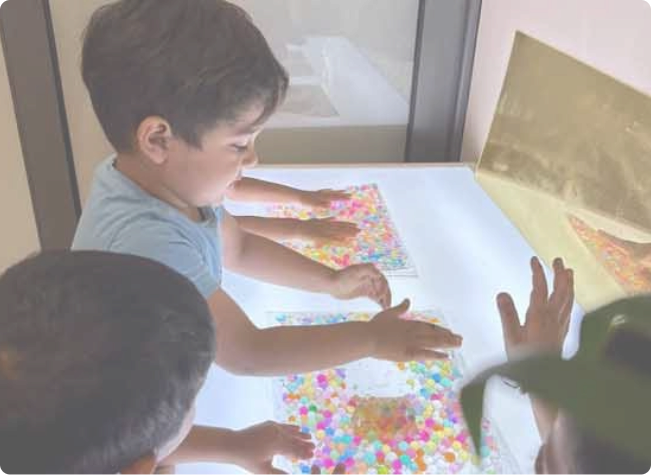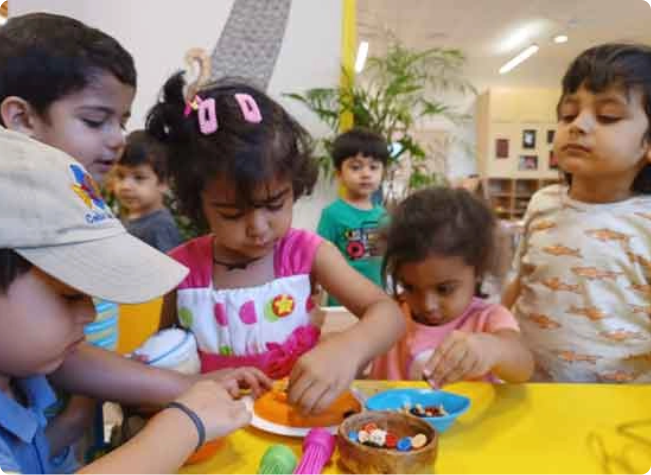Overview
The Early Years at Learning Matters are filled with joy, connection, and discovery. Designed for children aged 18 months to 4 years, our programme blends play-based learning with responsive caregiving and a deep respect for each child’s individuality.
Inspired by the Reggio Emilia philosophy and informed by neuroscience, our environments invite children to explore, imagine, and build relationships - at their own pace. Every moment, from block play to storytime, is an opportunity to nurture early childhood development and spark a lifelong love for learning.
The child is our curriculum. We do not follow themes, instead our curriculum emerges by observing children and their interests.
Our Pedagogical Approach
Our pedagogical approach is rooted in bridging the neuroscience of learning with everyday classroom practice. Through collaborative inquiry, advocacy, and ongoing exchange, we create environments that support both early childhood development and meaningful relationships.
Children are seen as individuals and active participants in a shared process of discovery - where knowledge is constructed through materials, ideas, and social interactions. Teaching is shaped by an in-depth understanding of learning differences, and relationships are guided by local cultures, care, and connection. Our work in early childhood education strengthens communities and places children's voices and rights at the centre of everything we do.
We are inspired by the Reggio-Emilia Approach
The Child
We see every child as competent, capable, and full of ideas. Rather than simply filling children with information, we engage with their questions, stories, and play to co-create learning moments.
At Learning Matters, children are active participants in their own learning. We believe this approach builds confidence, independence, a sense of agency and lays the foundation for lifelong curiosity and resilience.
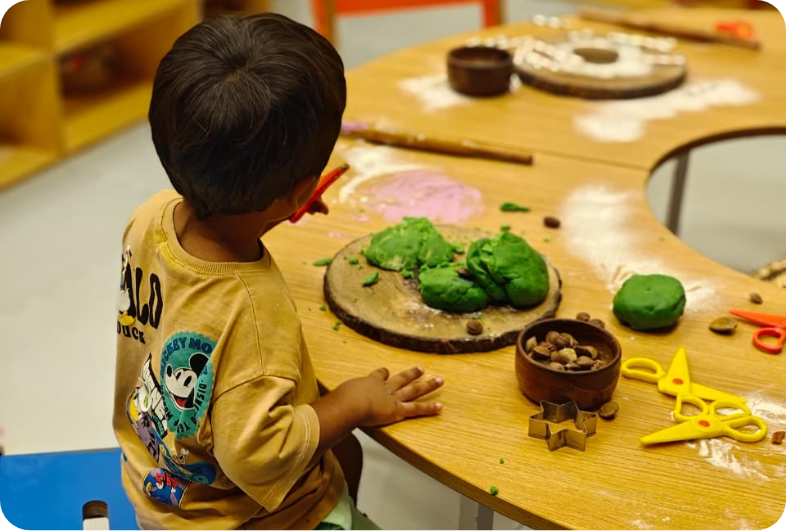
Play
Play is central to our approach because it is through play that children learn. Through play, children develop focus, language, interpersonal & problem-solving skills – all with joy!
Our environment is carefully curated to encourage self-directed play, which supports early childhood development across all domains - physical, cognitive, social, and emotional.
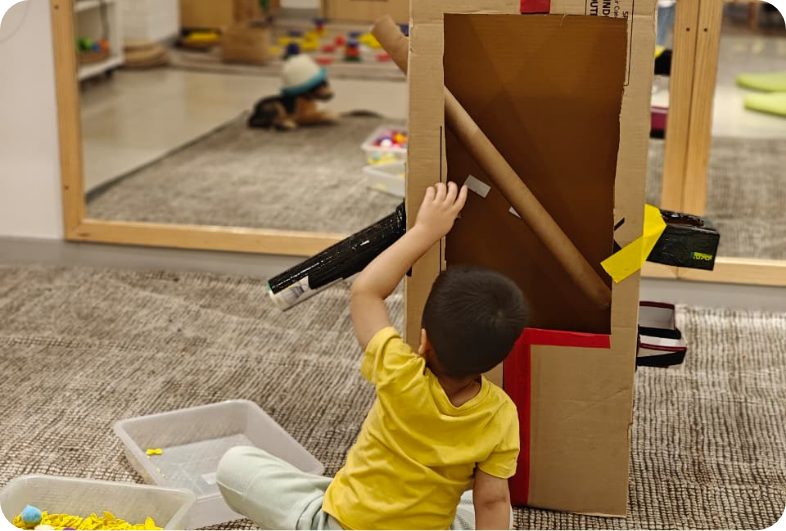
The Environment
We treat the environment as the “third teacher.” Our classrooms are open-ended, beautiful, and thoughtfully arranged to invite exploration, collaboration, and calm.
With both indoor and outdoor spaces designed for inquiry, exploration and movement, children feel safe, curious, and free to engage deeply. This kind of environment supports focus, independence, and joyful discovery - key elements of effective early childhood care and education.

The Educator
Our educators are not instructors - they are co-researchers with children, and collaborators in the learning process. They observe, reflect, and adapt the learning space and materials to meet each child’s evolving needs.
This empowers educators to support each child’s cognitive growth, and their physical & social development.
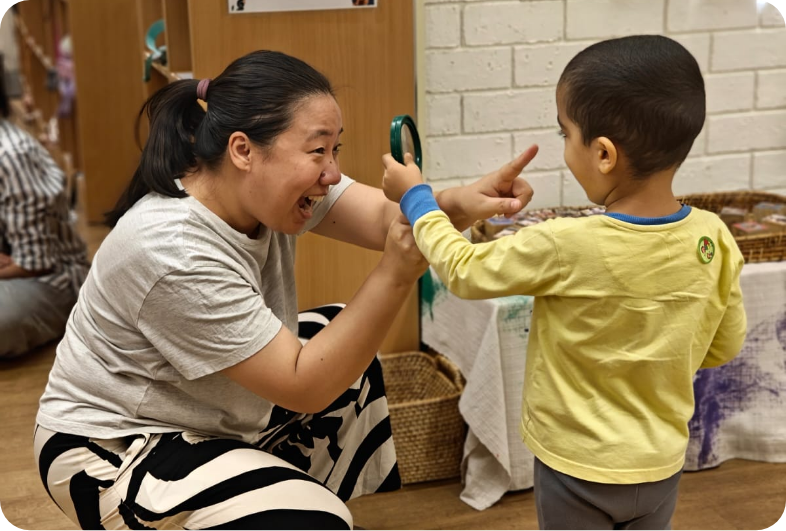
Emergent Curriculum
Rather than pre-planned themes, our preschool curriculum grows out of children’s ideas, questions, and daily experiences. If a group of children become fascinated by shadows, then exploration with light and reflection may become the curriculum.
This approach keeps learning relevant, engaging, and meaningful since it deeply rooted in each child’s interests.
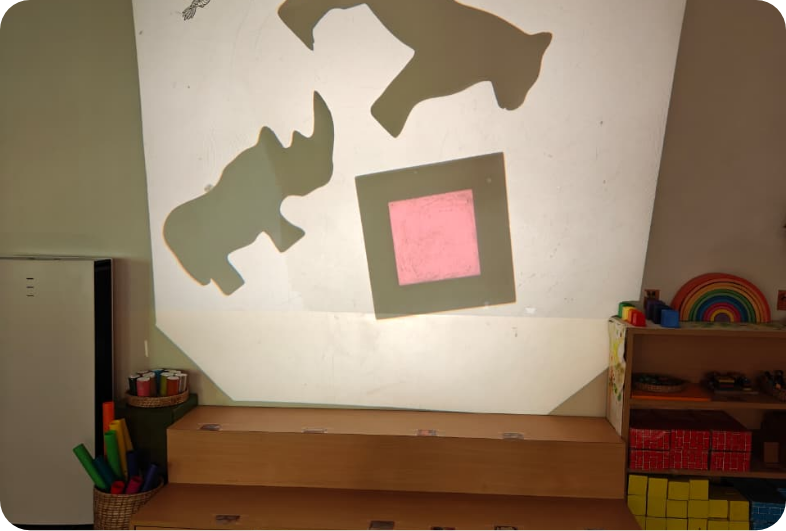
Documentation
We document children’s words, work, learning & growth through their photographs, quotes, and written reflections. These are shared with families and displayed in our spaces to make their learning visible.
Documentation helps educators understand how a child learns, helps parents feel connected to their child’s journey, and helps children revisit and build on past ideas.

Collaboration
Learning is not a solitary act. We foster collaboration among children, between educators and children, and between families and the school community.
This approach strengthens empathy, active listening, and teamwork in children, while giving parents and caregivers a meaningful role in the educational journey.


Our Programmes
Empowering children one story at a time
Hear from those who trust us.
Gallery
Frequently Asked Questions
Learning Matters offers programme for children between 18 months to 4 years, across Parent-Toddler and First Steps programmes.
The eligibility is as follows:
- Parent-Toddler (PT): 18 months – 2.5 years
- First Steps 2 hours: 2 years- 2.5 years
- First Steps 3 hours: 2.5 years – 4 years
Absolutely! We encourage families to visit, observe, and experience our environment firsthand. You can register for an upcoming Parent Visit through by filling the enquiry form on our website/ social media or by contacting us directly.
Our programme is inspired by the Reggio Emilia approach and rooted in early childhood neuro-development principles. We follow a play-based learning pedagogy that adapts to each child’s interests. We follow an emergent curriculum rather than using a fixed academic curriculum.
The admission process includes:
- Submitting the application form with a ₹2,500 non-refundable fee
- Completing the Parent Questionnaire
- School visit and interaction with coordinator and EY Director
- Enrolment confirmation email shared with shortlisted parents with fee payment link
- Parent Orientation & onboarding
- Child’s Birth Certificate
- Parent’s/Guardian’s Address Proof (Passport/Aadhaar)
- Cancelled cheque copy
- Consent & “Understanding the Child” forms
The process is fully online and usually takes 15 working days.
The management of Learning Matters reserves the absolute right to offer admission at its sole discretion. While age criteria, application procedures, and documentation requirements are in place, the final authority to grant or deny admission rests entirely with the management. This includes the right to admit a child irrespective of the application stage, waitlist position, or other considerations, as deemed appropriate.

